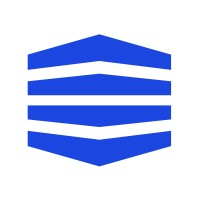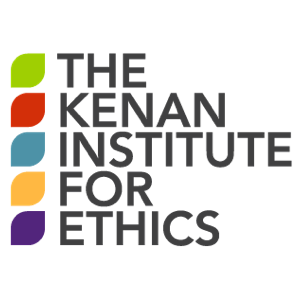Joseph DeChicchis
Duke University
Class of 2020
B.S. Computer Science, Philosophy Minor
Durham, NC
Graduated with Highest Distinction
About Me
I graduated from Duke University and am interested in everything from computer architecture and distributed systems to artificial intelligence and machine learning. I've worked at Lyft, Apple, and Microsoft to help build autonomous vehicles, prototype future technology for the Apple Watch, and develop tools for a large-scale distributed computing platform. I'm currently a Tech Lead and Senior Software Engineer at Clear Street where we're making a prime brokerage that's built on modern technology.
My Experience
Places I've worked at.

Tech Lead, Senior Software Engineer (Developer Experience, Infrastructure)
Clear Street
February 2023 - Present | New York, NY
• Leading a team of five engineers focused on Developer Experience.
• Team ownership includes: CI platform, deployment tooling, non-production environments, observability, developer tooling, and some core shared services.
• Responsible for the technical execution of the team. Balancing engineering quality with speed in a fast-paced and growing startup environment.
• Supported the growth of team members resulting in successful promotions.
• Led a major initiative spanning two quarters to migrate code storage and CI from GitLab to GitHub to improve the developer experience and CI performance and availability.
• Enhanced configuration management by setting up CICD to manage observability components (e.g., monitors and dashboards) via Terraform.
• Revamped the team's interview process with new questions and expectations.

Tech Lead, Software Engineer (Developer Experience, Infrastructure)
Clear Street
October 2022 - February 2023 | New York, NY
• Oversaw high-impact additions to Ivy (an internal tool to spin up ephemeral environments) to support S3 buckets and Snowflake integrations. Added support for public-facing ephemeral environments to enable use cases such as customer demos and UAT environments.
• Evangelized engineering best practices by revamping internal documentation and adding concise “How-To” guides. Created cookiecutters to template common developer workflows.
• Facilitated a team-wide effort to improve monitoring coverage from 30% to over 90%.
• Executed a project to accurately monitor clock skew in our Kubernetes nodes to comply with regulatory requirements.
• Guided the rebuild of a core service that forwards Kafka messages to our Argo cluster to trigger various business-critical ETL workflows.

Software Engineer (Infrastructure)
Clear Street
July 2020 - October 2022 | New York, NY
• Improved builds and reduced CI times by an order of magnitude.
• Designed and built a deployment tool (SLeD) reducing deployment times from weeks to days.
• Designed and built Ivy, a system that can bring up a fully functioning ephemeral development environment for manual and automated testing in around 10 minutes.
• Revamped internal Protobuf and gRPC tooling to improve the developer experience.
• Evangelized proper API design with improved documentation and linter configurations.
• Helped onboard and mentor new engineers.
• Participated in the production and internal support on-call rotations.

Compute Engineer Intern
Lyft (Level 5, Self-Driving Division)
May 2019 - August 2019 | Palo Alto, CA
• Worked on a project to increase the compute efficiency (low latency and low power) of the on-vehicle compute system while maintaining thermal limits using hardware accelerators.
• Incorporated software optimizations to improve neural network inference performance while minimizing negative effects on model accuracy.
• Used popular machine learning frameworks such as TensorFlow and PyTorch as well as hardware-specific tools to validate various methods of improving computing efficiency.

Head UTA for ECE/CS 250
Duke University
August 2018 - May 2020 | Durham, NC
• Head undergraduate teaching assistant (Head UTA) for an introductory undergraduate computer architecture class which covers C, assembly (MIPS), processor design, memory and I/O
• Coordinating a team of 20 to 25 undergraduate teaching assistants, and working with the professor and graduate teaching assistants on course logistics and material
• Duties include: grading homework assignments and exams; leading out of class recitation sections; holding office hours; preparing study materials; responding to student questions
• Received an Undergraduate Teaching Assistant Citation for the Fall '18 and Spring '19 semesters, and received an Outstanding Undergraduate Teaching Award for the 2018-2019 academic year
• Promoted from a regular UTA (August 2017 to August 2018)

Software Engineer Intern
Microsoft (Service Fabric)
May 2018 - August 2018 | Redmond, WA
• Developed an internal diagnostic tool to improve engineering efficiency for Service Fabric, Azure's open-source distributed computing platform.
• Designed the tool to be extensible, so team members can add additional functionality to the tool with minimal effort, and provided step-by-step documentation.
• Reduced the amount of time it takes to diagnose common issues by an order of magnitude.

Software Engineering Intern
Apple (Watch Software)
May 2017 - August 2017 | Cupertino, CA
• Developed a prototype system for communication between two iOS-enabled devices.
• Worked with mail protocols, natural language applications of machine learning, and networking and database technologies.

Research Assistant
The Kenan Institute of Ethics
January 2017 - May 2020 | Durham, NC
• Added data visualization to the Kenan Refugee Project website and implemented a database using Firebase to facilitate faster updates of website content.
• Developed a custom administrator and user console to enable the management of website content through a simple-to-use interface.
• Continued maintenance and improvement of the Kenan Refugee Project website which was written in React.js.

Developer
GenieUs Inc
August 2016 - May 2017 | Durham, NC
• Developed the iOS app (Walla) and the backend using Firebase and Node.js.
• Maintained the website (Bootstrap).
• Won the 17th Annual Duke Startup Challenge Grand Finale ($50,000 award).
Publications, Posters, and Demos
- DeChicchis, Joseph (2020). Semantic Understanding for Augmented Reality and Its Applications. Honors thesis, Duke University. Awarded Graduation with Highest Distinction. (Read Thesis)
- Joseph DeChicchis, Surin Ahn, and Maria Gorlatova. 2019. Adaptive AR Visual Output Security using Reinforcement Learning Trained Policies: Demo Abstract. In Proceedings of the 17th Conference on Embedded Networked Sensor Systems (SenSys '19). ACM, New York, NY, USA, 380-381. (Read the Demo Abstract)
- Presented a demo at the 17th Conference on Embedded Networked Sensor Systems (SenSys '19) on adaptive AR visual output security. (See the Poster)
- Presented work on adaptive AR visual output security at the 2019 Duke CS Undergraduate Project Showcase.
My Projects
Some projects I've worked on.
 MyWatchlist: Movies & TV Shows
MyWatchlist: Movies & TV Shows
January 2021 - Present
Built an iOS app using Flutter to help track movies and TV shows to watch. Reached over 2000 active monthly users.
MyWatchlist Website
 Semantic Understanding for AR
Semantic Understanding for AR
August 2019 - April 2020, Duke University
Semantic understanding is critical to improving AR experiences because it makes AR more seamless as virtual content interacts naturally with the physical word. This project builds and deploys a system which uses a semantic segmentation model and Magic Leap One to bring semantic understanding to a physical AR device, and explores applications of semantic understanding such as visual output security using reinforcement learning trained policies and the use of semantic context to improve mesh quality.
 Adaptive AR Output Security
Adaptive AR Output Security
January 2019 - April 2019, Duke University
Deployed an adaptive augmented reality output security application on the Magic Leap One which ensures that holograms do not obstruct important real-world objects using a policy trained by reinforcement learning (RL). Demonstrated that RL agents can be deployed on the Magic Leap One with minimal performance impact and validated that RL trained models are a viable method for developing policies for output security. Demo abstract to appear in ACM SenSys ‘19.
Read the Report
 Cloudlet Caches
Cloudlet Caches
October 2018 - December 2018, Duke University
Proposed an edge computing platform which caches dynamic data (i.e. both reads and writes) as a potential architecture for an edge computing platform. Investigated what state management may look like for such an architecture and evaluated various architecture configurations using a key value store which supported GET, SET, and DELETE operations using a custom C# implementation running on a MacBook Pro and Raspberry Pies.
Read the Report
 Methuselah Flash for SSDs
Methuselah Flash for SSDs
October 2018 - December 2018, Duke University
Worked with a couple other students to implement a proof-of-concept of the Methuselah Flash algorithm, which aims to improve the lifespan of SSDs by increasing the number of rewrites before erasing. Developed a C simulation and implemented the algorithm on a Xilinx development board to evaluate the design. The use of Methuselah Flash allowed for a six fold increase in the number of rewrites but accessing the SSD while running the Methuselah Flash algorithm proved prohibitively time-consuming.
 Autograder
Autograder
January 2018 – March 2018, Duke University
Worked with a couple of other Duke students and a TA to develop an autograder for Duke University's ECE/CS 350 Digital Systems class. Built on Node.js, the autograder compiled and executed verilog code against test cases and analyzed the output for correctness.
 GiveMeGreen (HackDuke)
GiveMeGreen (HackDuke)
November 2016, Duke University
Made an app with a few other Duke students at HackDuke 2016 which crowd sourced funds for environmental projects using cryptocurrencies. Worked on the iOS frontend and Node.js backend. We won the Best use of the Bitcoin or Ethereum blockchain API prize.
GitHub Repo
 Music Recognition System
Music Recognition System
March 2016, Oxford High School
Created a music identification system from scratch using MATLAB for an IB math research project. Functioned as a small scale version of Shazam and SoundHound.
Read the Report
 Point View (iOS App)
Point View (iOS App)
February 2014, Japan
Built an application which enabled users to retrieve the information about a point of interest by holding their phone in front of a building. Rose to number 18 in the Travel category on the Japanese App Store.
App Store
 Handwriting Recognition
Handwriting Recognition
September 2013, Japan
Created a handwriting recognition system for the Leap Motion Controller using a neural network which enabled users to input text into their computer by drawing letters in mid air above the Leap Motion Controller.
 AirControl (macOS App)
AirControl (macOS App)
September 2013, Japan
Built a Leap Motion Controller app for the Mac which enabled users to control their computers by moving their hand in mid air. The app supported gestures for moving the cursor, clicking, double-clicking, dragging, and scrolling. Downloaded over 1000 times.
Some of My Interests
Topics that I want to learn more about.

Computer Architecture

Machine Learning

Distributed Systems

Quantum Computing

Augmented Reality